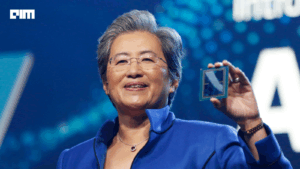Hero, a productivity startup founded by former Meta employees Brad Kowalk and Seung W. Lee, has introduced a new autocomplete SDK designed to make it easier for developers to build and manage AI interactions.
The launch is the company’s latest step in improving the speed and efficiency of AI systems. The SDK, currently available by invitation only, allows developers to add Hero’s prompt completion technology to their own applications.
The task of writing effective prompts for AI tools has become a key challenge as more companies adopt large language models. Many organizations now hire prompt engineers to help users get better results from AI systems. Hero aims to remove that barrier by completing prompts automatically based on context. The goal is to save time and make AI tools more accessible.
Brad Kowalk, Hero’s co-founder, described the SDK as a natural extension of the company’s focus on faster and simpler digital workflows. “With AI autocomplete, we pull forward all the inputs needed to complete an action, finishing it 10 times faster as there are fewer back and forths involved,” he said. Kowalk added that the feature improves both speed and cost efficiency for companies that use AI at scale.
How the SDK Works
Hero’s SDK predicts what the user wants to do and fills in the missing details. When a user types “Book a flight,” the system generates structured fields such as “to,” “from,” “on date,” “at time,” “airline,” and “returning on.” The user can stop typing at any time and send the prompt to the chatbot. This allows the system to finish the task without repeated clarification.
The same idea works for creative tasks. In image or video generation, the SDK can suggest details such as “object,” “style,” “location,” “lighting,” and “camera angle.” This reduces the number of steps usually needed to refine an output. Hero engineer Saharsh Vedi said the team wanted to cut down on repetitive exchanges. “You usually need several back and forth messages with an AI tool to get the result you want,” he said. “This makes that process much shorter, sometimes with just one prompt.”
The SDK uses a group of prediction models trained to anticipate the next likely input. These models analyze patterns in user behavior and context to improve accuracy. Kowalk said that the design was influenced by his and co-founder Seung W. Lee’s experience working on augmented reality at Meta. In AR environments, the limited screen space forces simplicity, so they used that same principle for AI prompting to make interactions faster and cleaner.
Applications and Industry Impact
Hero’s SDK arrives at a time when developers are looking for simpler tools to build AI applications. Many consumer-facing platforms now include buttons or example prompts to guide users. Hero takes this one step further by giving developers an SDK that automates prompt completion from within their own products.
For companies, the efficiency gains can be significant. Fewer messages between users and AI systems mean lower server costs and faster performance. This can be especially useful in enterprise software, customer support, or commerce platforms where users expect quick results.
Hero is also exploring partnerships beyond productivity software. The company is in talks with Koah Labs, an ad tech startup, to test AI-powered advertising using autocomplete suggestions. The concept would allow brands to appear in relevant contexts without interrupting user activity.
The startup is also testing a version of the autocomplete feature inside its own productivity app. The update will help users schedule meetings or find time to catch up with friends using simple prompts. Instead of typing multiple steps, users will be able to let the app generate the required fields automatically. This feature is expected to roll out in the next few months.
Hero raised $4 million in seed funding last year and recently secured an additional $3 million led by Forerunner Ventures. The new funding will support the SDK’s development and its rollout to more developers. Kowalk said that depending on how the SDK performs during this testing phase, the company plans to raise a larger round soon.










